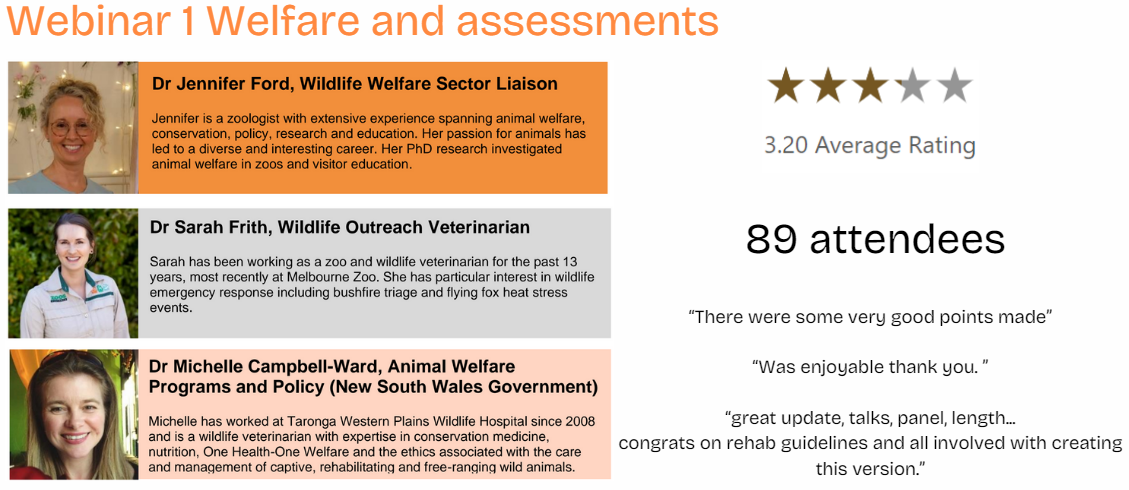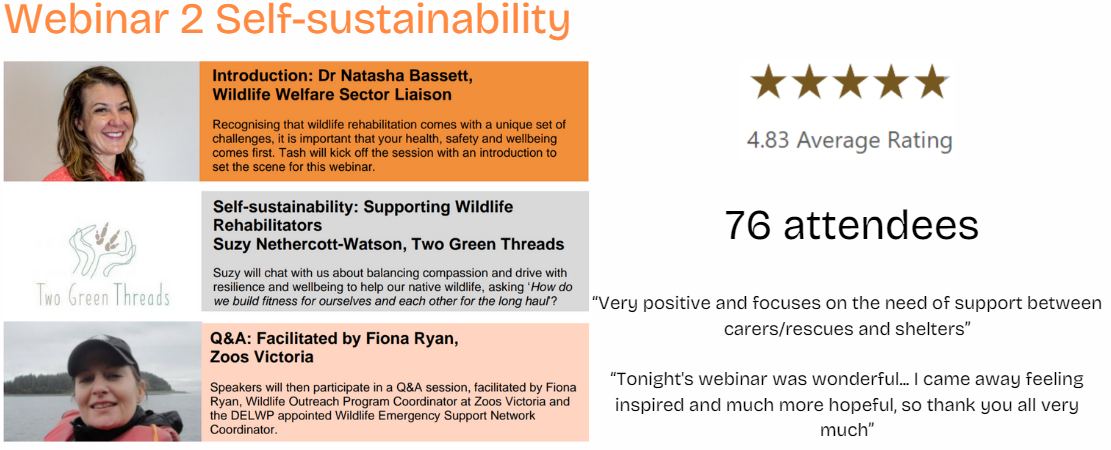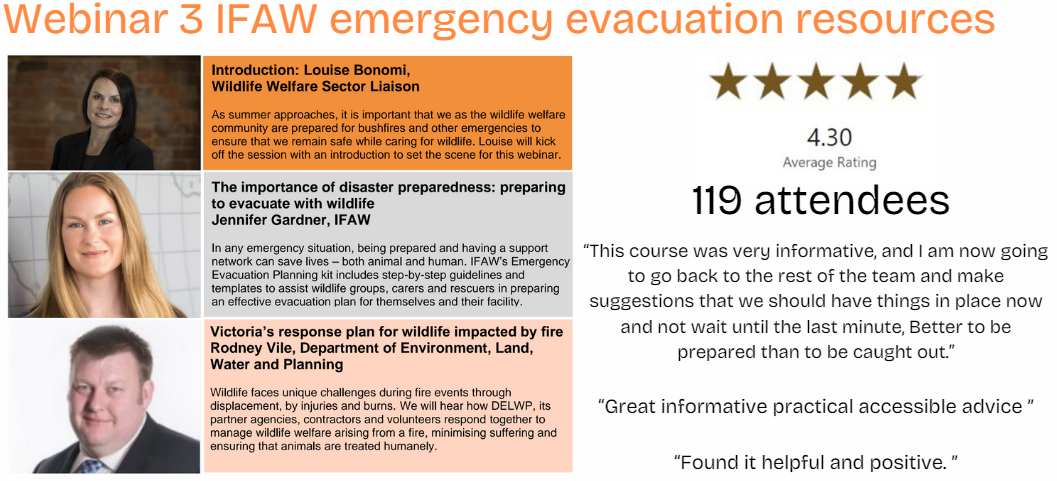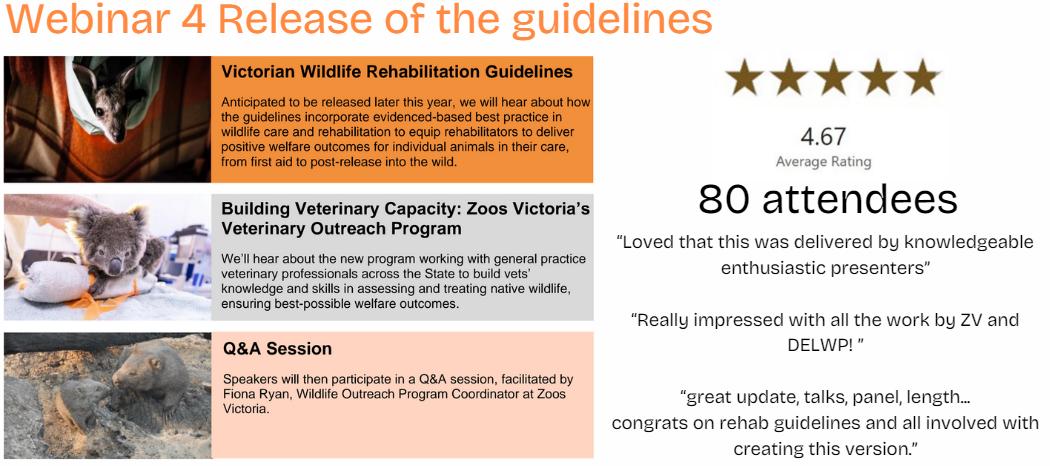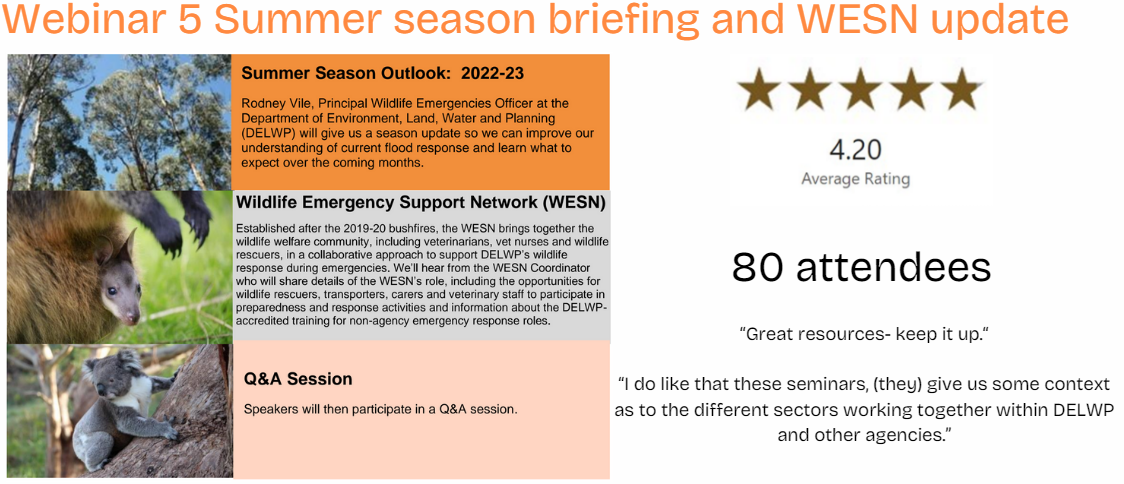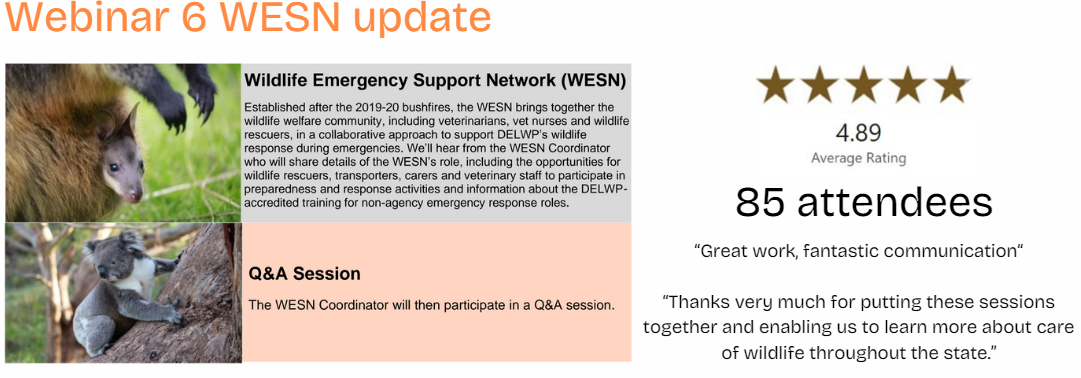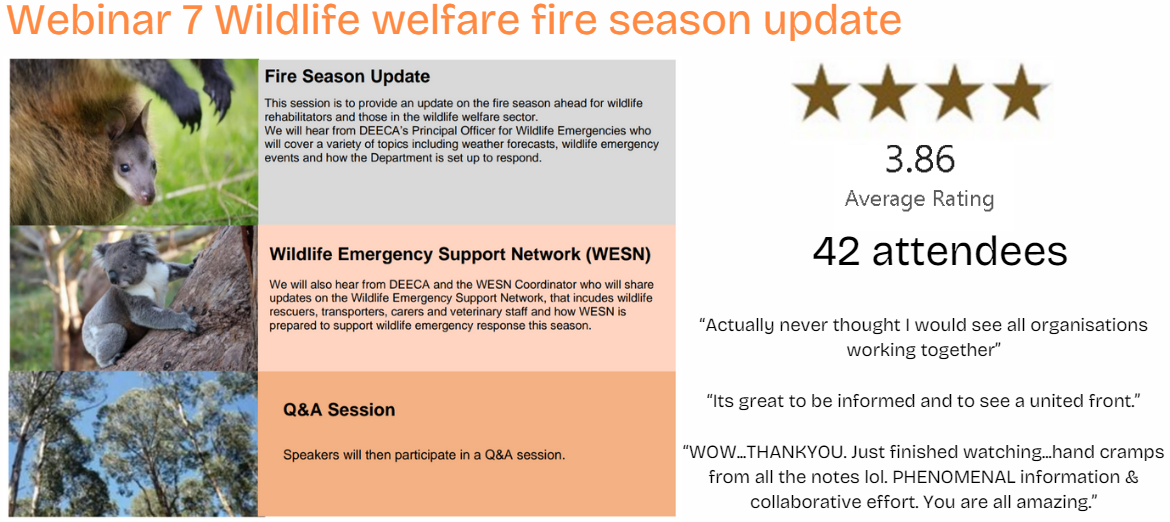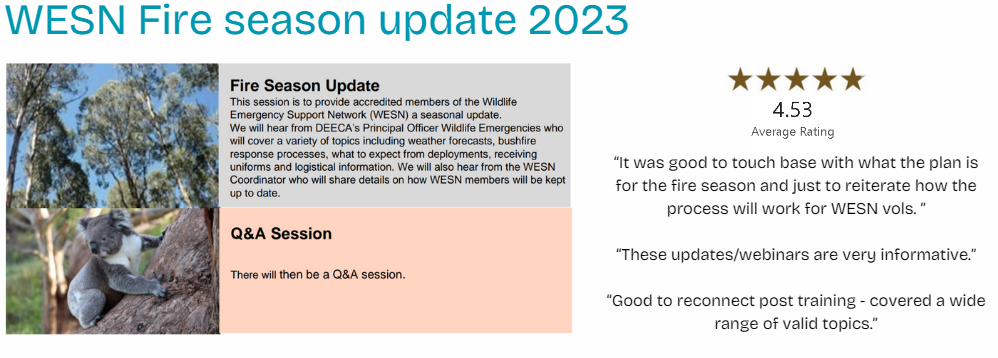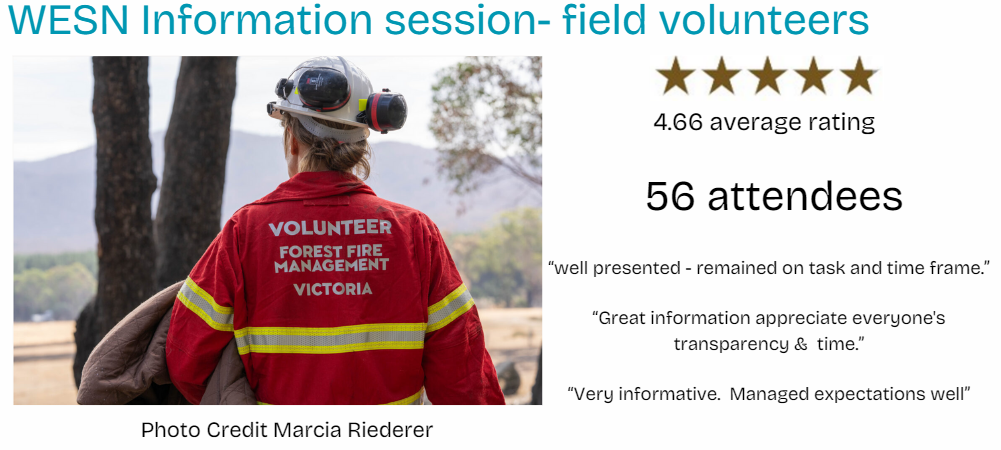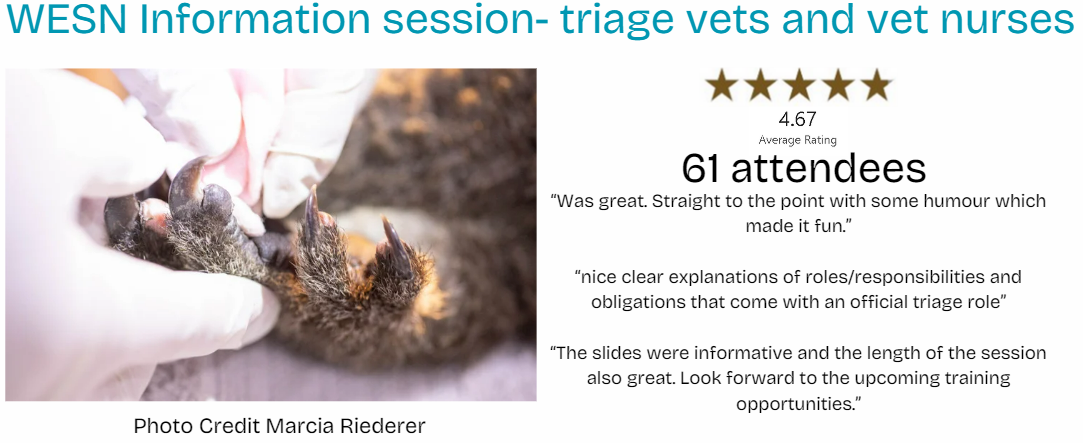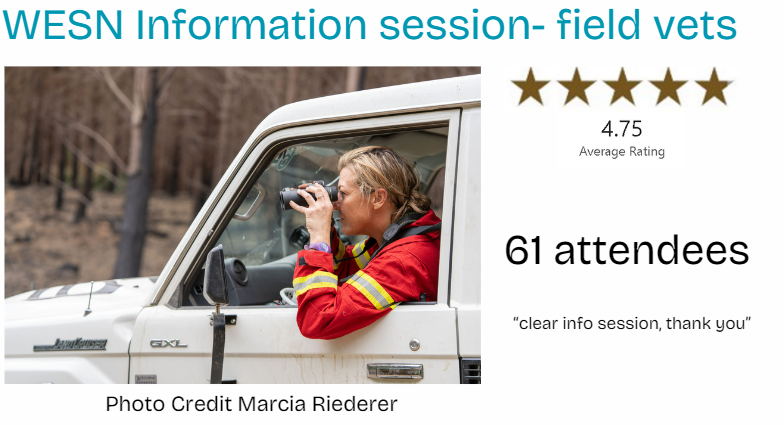Our projects

Together for Wildlife supports improved collaboration and communication across the wildlife welfare sector. It is a collaboration between DEECA, Zoos Victoria, Wildlife Victoria, Parks Victoria, RSPCA Victoria, Australian Veterinary Association, Birdlife Australia, Philip Island Nature Parks, International Fund for Animal Welfare (iFAW) and The University of Melbourne.
The initiative was formed after the 2019-2020 bushfires under the Wildlife Welfare Bushfire Response 2020 Action Plan. Each organisation has representatives that participate in the Wildlife Welfare Communications Working Group, a group that meets every six weeks to strengthen relationships and develop communication assets and information to share agreed key messages for the community before, during and after fires, floods, storms, extreme heat events and high winds.
To subscribe to the Together for Wildlife mailing list, register here.
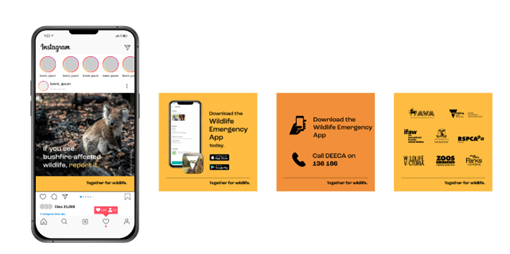
With over 450 subscribers that receive updates and invitations to attend the webinar series, Together for Wildlife facilitates connections and shared information with the wildlife welfare sector.
To subscribe to the Together for Wildlife mailing list, register here.
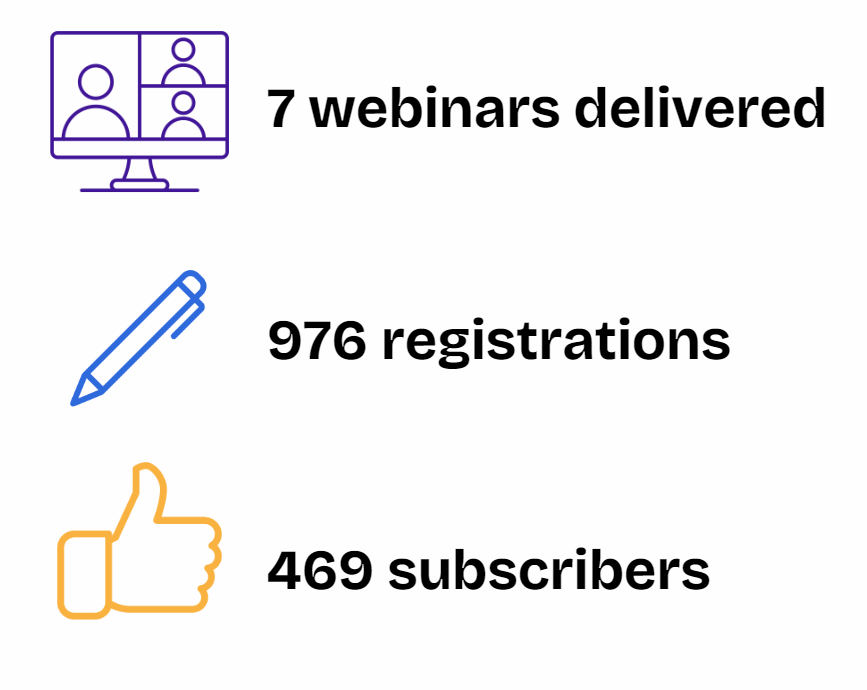
Targeted webinars are also delivered online which have covered Wildlife Emergency Support Network information.
Information sessions were held for WESN on the roles of field volunteers, triage vets and vet nurses and field vets in the Wildlife Emergency Support Network (WESN), including next steps for training and an outlook of the season ahead.
The Wildlife Emergency Support Network (WESN) was formed to improve wildlife welfare outcomes through the development of a network of trained and accredited individuals from across the veterinary and wildlife welfare sectors who can be deployed as part of wildlife emergency response activities for bushfire and extreme heat events. For more information, see Wildlife Emergency Support Network.
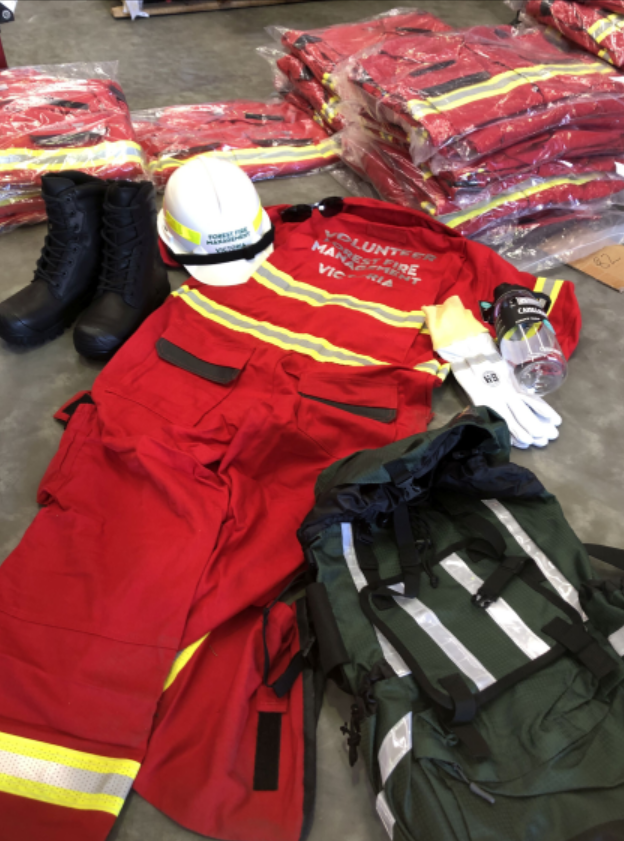

To improve support for the wildlife rehabilitation community DEECA partnered with Zoos Victoria to complete the Victoria Wildlife Rehabilitation Guidelines.
The Guidelines incorporate evidenced-based best practice information for wildlife care and rehabilitation to equip rehabilitators to deliver positive welfare outcomes for individual animals in their care, from first aid to post-release into the wild. The guidelines consist of 4 books covering 148 species that may come into care across Victoria. See Victoria Wildlife Rehabilitation Guidelines for more details.
Zoos Victoria’s Wildlife Outreach program commenced in 2021 and is in the early stages of establishing a state-wide network of general practice veterinary professionals. Through structured workshops and ongoing guidance, the program aims to increase capacity and skill in clinical assessment and care of native wildlife and emergency response preparedness. This program is currently funded through the Victorian State Government, with $480,000 being invested over 4 years (until June 2027).
For more information, please visit Wildlife Outreach (zoo.org.au).
The Victorian government has funded a wildlife hospital to be built as part of the protecting our parks, pets and wildlife – animal welfare initiative. $4.7 million has been granted to Zoos Victoria over 4 years to support the design, establishment and running costs of the wildlife hospital. The Wildlife Hospital will be owned and operated by Zoos Victoria.
The Victorian Government is supporting Wildlife Victoria and its members by providing a $1 million grant over 2 years to help run the Wildlife Victoria Hotline. Wildlife Victoria reports that operation of the hotline helps ensure prompt response to both the Victorian public and to sick, injured, and orphaned wildlife. Since 2020, the Victorian Government has supported Wildlife Victoria operations with over $2 million in funding.
Sugar Glider rescue - Wildlife Victoria Case Study
"This sweet little sugar glider was found tangled up in a barbed wire fence and was not able to free itself.
A kind member of the public found the glider on their property and had tried to free it, but the poor little creature was quite distressed. They called Wildlife Victoria, and our rescuers were able to delicately free the glider and get it some veterinary assistance.
Luckily, its injuries were minor and with some pain relief and TLC it is now recovering well in care, soon to be released back into the wild.
We love being able to offer a point of contact for compassionate community members to be able to get advice and assistance when they come across wildlife in need.
Finding an animal that is sick, injured or orphaned can be very distressing and members of the public are often unsure of what to do.
Our service is available every single day of the year to talk callers through the situation and dispatch trained volunteers or veterinary staff when needed." Wildlife Victoria 2023
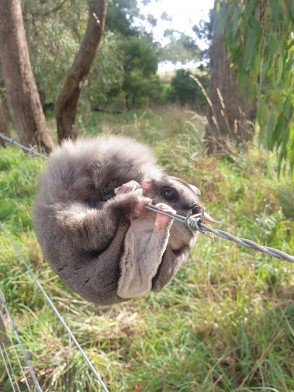
Between July 2022 and June 2023 this funding supported a Training Event Coordinator role, training event kits, two 3-day training events in Melbourne for Wildlife Victoria trainers across the state. A further seven regional training events were delivered, training 101 volunteers in a full day of basic rescue and transport to assist wildlife before transporting to local veterinarians.
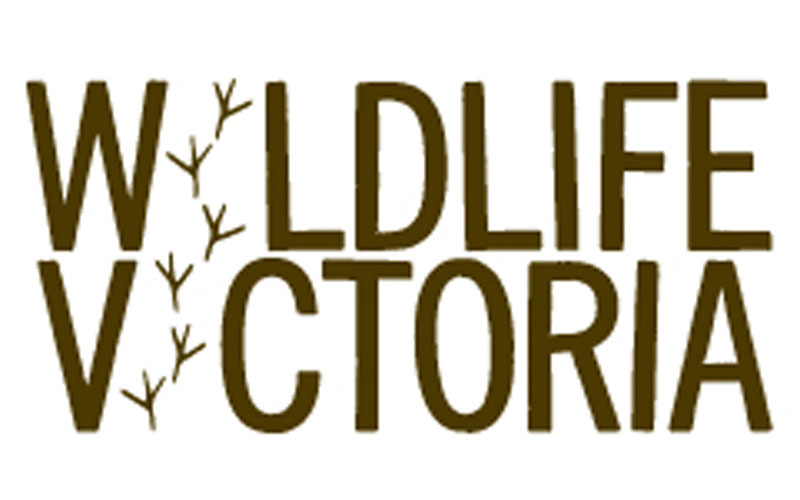
For more information, please visit Wildlife Victoria
To help mitigate the impacts of heat stress events the Victorian Government provided funding over two years to support threatened Grey-headed Flying-fox colonies including installing sprinkler infrastructure to assist the iconic Yarra Bend colony from heat stress events, strategic planning for future conservation work, and engaging with the community as part of the Wildlife care and protection initiative.
DEECA recently published the Victorian Response Plan for Heat Stress in Flying-foxes. The Plan formalises DEECA’s accountability for flying-fox heat stress events by adopting standardised emergency response structures and arrangements, consistent with other emergency events within Victoria.
In March 2024 DEECA put the Yarra Bend Camp Plan into action and worked with Parks Victoria, Zoos Victoria, Wildlife Victoria and wildlife volunteers to activate the sprinklers at Yarra Bend Park to ensure the Grey Headed Flying-foxes were appropriately managed during the heat stress event.
For more information, please visit Extreme heat events and wildlife.
The Victorian Government has provided $400,000 of funding over 4 years (2021-2025) to support Mange Management Inc. in carrying out wombat mange treatment operations and community engagement activities including workshops and volunteer training. In 2023-2024 Manage Management reported treating 1241 cases and supplying 393 treatment kits, 238 burrow flaps, delivering 10 events with the wider community to raise awareness of mange and has 91 volunteers operating.
For more information, please visit Mange Management.
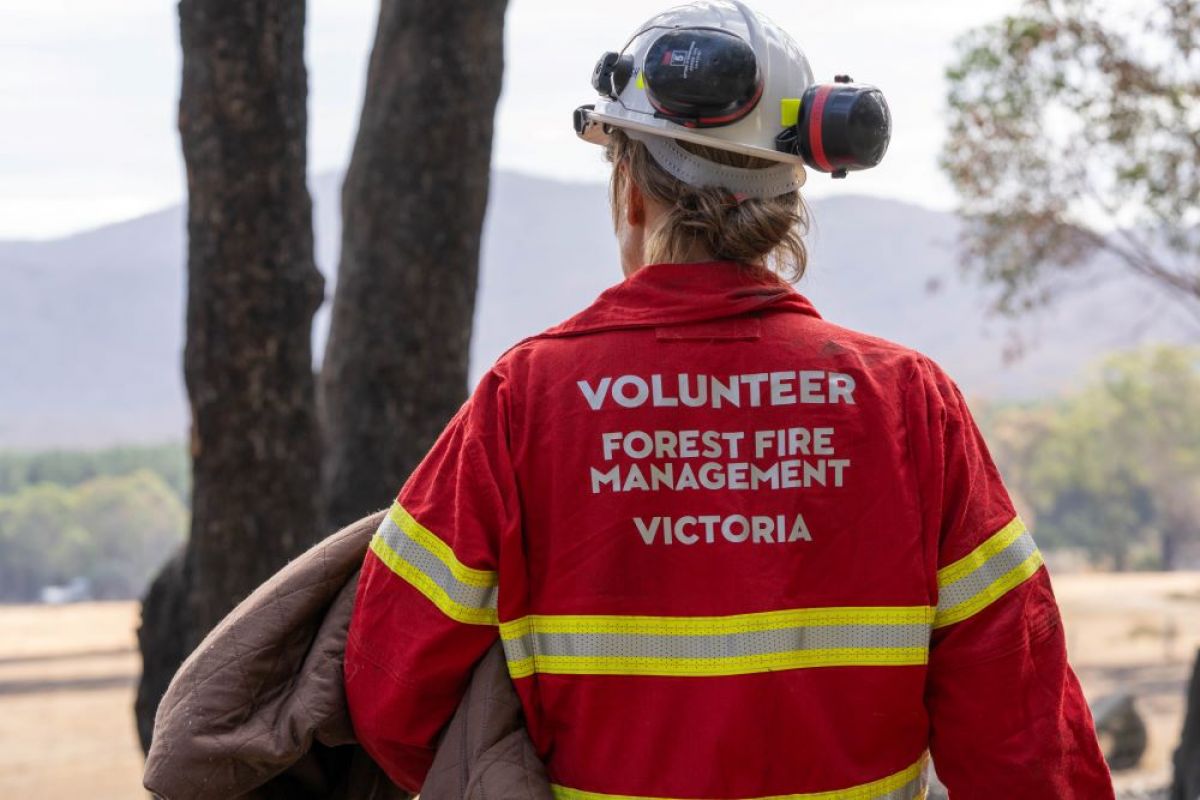






Wildlife welfare initiatives
DEECA is working with other state agencies and community based wildlife rescue and care organisations across Victoria to support wildlife welfare.
The 2023-24 Victorian Budget committed $7.2 million over the 4 years to fund projects and programs delivering improved wildlife welfare outcomes across the state.
This includes:
- $4.7 million for a new wildlife hospital to be built in Victoria and run by Zoos Victoria, that will support increased capacity in caring for wildlife hurt in natural disasters.
- Expanding Zoos Victoria’s Outreach Program, which aims to improve the knowledge and skills of veterinary staff who care for wildlife across the state.
- $1 million over 2 years to help run the Wildlife Victoria Hotline.
- $960,000 for the Wildlife Emergency Support Network, to improve wildlife welfare outcomes through the development of a network of trained and accredited individuals from across the veterinary and wildlife welfare sectors who can be deployed as part of wildlife emergency response activities for bushfire.
This funding builds upon the Government’s 2022-23 State Budget commitment of $5.32 million for the Wildlife Care and Protection Initiative to manage priority wildlife issues, including support for grey-headed flying fox colonies and the installation of a large sprinkler system along the Yarra River, to support grey-headed flying foxes, from stress during extreme heat.
DEECA engages with key wildlife welfare organisations to improve the collaborative response to wildlife welfare issues.
Page last updated: 06/11/25
